Skip to content
Discussion Questions
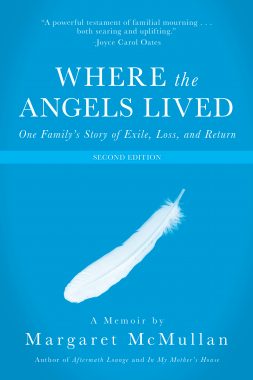
- Consider the secrets that might exist in your family. Do you think it’s important to know all that you can about your family? Or, do you think some things are better left unsaid?
- The writer P.J. Schwartz writes that “memory is not only integral to our Jewish tradition, but is part of all humanity.” Do you agree? What do you want your children to remember about you and your family?
- The archivist at Yad Vashem tells Margaret she’s responsible for Richárd and for filling out the Page of Testimony. How important is it to you to remember family members who have died? What about family members you never knew?
- In his account of the Hungarian Holocaust, author Sándor Krassó lists announcements that appeared in the local paper between March 23 and July 6, 1944, the day 6,000 Jews were led to the main railroad station in Pécs where they were loaded into cattle cars and sent to Auschwitz. Why does the author include the full list on page 200? What does this list tell you?
- Pécs is one of the lost cities in Yad Vashem’s Valley of the Communities. On page 208, Margaret asks, “How do you forgive a country?” What do you think a country or its government should do to make amends or atone for past sins? Can they? Do they need to?
- József named Richárd after his friend, the composer and anti-Semite Richard Wagner. Does it matter to you how an artist lives and thinks? Does it change the way you look at their art, read their work, or hear their music?
- The Kaddish is a prayer meant to help the soul of the deceased on his journey. Read the prayer. Consider how much praise the prayer gives to God and why that is, in a prayer for the dead. Collect other prayers for the dead from other cultures. Any similarities?
- In many ways Where the Angels Lived is a companion to her novel, In My Mother’s House, except that one is a memoir and the other is a novel. Why do you think the author decided to write a memoir, and not, say, a novel about Richárd’s life?
- Could anything like the Holocaust happen again? How? Why? What could or would you do to prevent it from happening? Specifically, how can we be pro-active about not forgetting?
- Why do you think there are still Holocaust deniers? How and why can a country whitewash history?
Discussion Questions
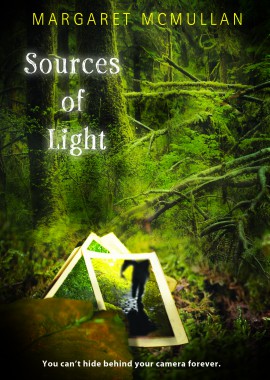
- Sam’s father died a war hero. How do you think that fact affects Sam and this particular year in Sam’s life?
- Why do you think Sam wants to be with Stone? Why does she forgive him his faults?
- Sam’s mother teaches art history. Sam says, “She loved the French landscapes by Poussin, the still lives of Caravaggio and all those cloudy paintings by Monet.” Look at one or more of the paintings Sam says her mother prefers. Then look at some of the paintings from the 1960’s. Discuss the differences. Talk about historical events that might have had an effect on the art. Do you think art reflects our times?
- Do you think Perry Walker was in Jackson to stir up trouble? Talk about Perry’s character. Would you have been his friend? Would you have stayed his friend?
- Discuss Willa Mae and her life. Why do you think she keeps her distance?
- Look at a timeline of all the events that happened in the 1960s. Why do you think all these things happened then?
- Why do you think Sam says she’ll keep hearing the sound of cicadas? What do you think cicadas have to do with this story?
- Read the short story “Powerhouse” by Eudora Welty. Imagine Welty reading this story in 1962 in Jackson, Mississippi to a racially integrated audience. Discuss your reactions both to the story and to the imagined reading.
- Borrow a camera or buy a disposable camera and take pictures. Take directions from Perry Walker. Take pictures of “anything you would paint. Anything you look at or wonder about or want to know more about.” Show your pictures to a friend. Discuss them.
- Why do you think this novel is called Sources of Light?
Discussion Questions
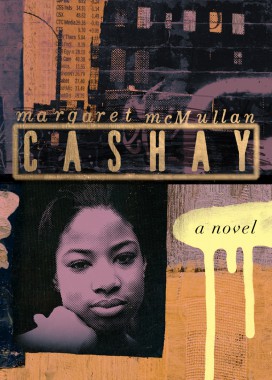
- Pick one character in the novel you would like as your friend and say why.
- Cashay is mostly very angry. Why? When Sashay was shot, what would you have done if you had been Cashay? How would you feel?
- Do you think we need as a society to help children like Cashay and her mother?
- Discuss the implications of Cashay’s statements on page 72: “This woman, Allison, she thinks like a man and I want to know how I can start thinking like that too.”
- Discuss the implications of Cashay’s comment on the bottom of p. 72: “In the projects where I live, no one talks about what’s in the paper or the Middle East or the stock market or the economy.”
- Cashay has problems with anger. Allison gives her a journal so that Cashay can record each occasion when she gets mad. They call this Cashay’s Hostility Log. Start your own journal. If you want, you could call it My Hostility Log or My Angry Journal. Record each time you get angry. Write about the situation and your reaction. Get in the habit of filling in the blanks: When, Scene, Feeling, and Action.
- Mentors can make such a huge difference in lives. Which people help or don’t help Cashay? Which one or ones does she prefer and why? Do you have a mentor in your life? How do you get one?
- Do you think it matters that Allison is white and Cashay is African-American? Why or why not? How do their differences affect their relationship? How are they alike?
- What do you take away from this novel? Do you think it’s important for novels to have messages, morals, or something to take away?
- The author of Cashay is white. She writes about Cashay in the first person, from an African-American point of view. Have you ever written from a different point of view, other than your own? Try it.
Activities from TeachPeaceNow.Org:
- Research the author. Write letters to her through her website.
- Write a letter to Cashay telling what most impressed them about her.
- Set up a tutoring program in the school if there isn’t one.
- Compare a newspaper article about a drive by shooting with the book. Which format best captures the tragedy of this happening? (find current news articles by searching on drive by shooting)
Discussion Questions
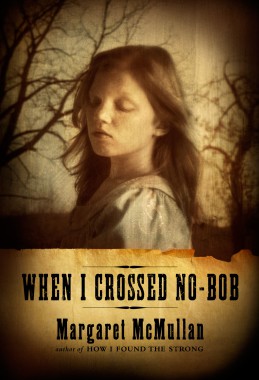
- When Addy returns to No-Bob, everything looks different, partly because she has changed. Have you ever gone away for a length of time, then come back home and seen everything and everybody differently? Write about it.
- Can you explain the title of this book? How many meanings can you find in the word cross?
- Who is Addy prejudiced against and how does she overcome her prejudices? What about Frank? Does he have any preconceived notions about Addy? Does anybody else in the story pre-judge?
- Have you ever tried to “win” friends? Addy tries to make people laugh. She “plays teacher” and gets into Mr. Frank’s things, including his pipe. To what lengths have you gone to gain friendships?
- In Chapter 8, Addy notices that Mr. Frank has changed. Do you think he has changed? How?
- How does Addy’s father make people laugh? How does Addy respond? How does Addy make people laugh? Does the way Addy use her humor change?
- In Chapter 5, Addy considers what is on and what is not on a map. “I think of Mr. Frank’s map up at the school house. What Momma and Pappy had between them – that fierce love – was not on that map. All the jokes I played on Mr. Frank were not on that map. The war was not on that map, and neither was the surrender. What is on a map, what does get recorded, and the way things look don’t have much to do with what’s going on with people.” Create your own map like Addy and Little Bit do. Draw your own home, your neighborhood or even your own body, making notes of everything that has happened there.
- Addy talks a lot about what the O’Donnells talk a lot about. They talk about people in their own family. What family tales, folktales, myths get told again and again in your family? Tell those stories, using the voice or voices of the person or persons telling them.
- In Chapter 10, when Addy is at the courthouse, she notices Frank and Irene: “This is the love that is good in a marriage. This is the love that Momma and Pappy never had. This here in front of me is a proud love, a quiet, honorable love. This love rises above fierce love and smashing lips.” Talk about the different relationships between men and women in this book. What do you think Addy learns about love, marriage, and family life?
- What gets “told” about you? What do your relatives tell about your birth or other big events that helped to shape who you are now? What gets left out? For once and for all, set everyone straight and tell the story about you.
Discussion Questions
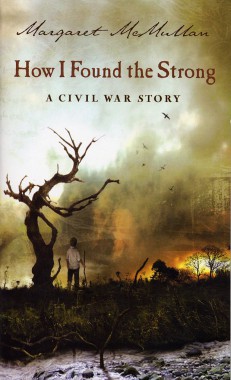
- Discuss Shanks relationship with his father before his father goes off to fight, then after, when he returns home. What do you think happened to each of them? What makes them different with each other?
- Why does Shanks mother teach Buck to read? How does this change Buck? How does this change Shanks?
- What is Shanks friendship like with Buck? Does it change?
- Why is Buck so quiet? Why would he stay on? Why not leave?
- Some readers question McMullan’s use of the “n” word. Can you find that word in the book? Can you justify its use?
- Do you think this book takes sides in the conflict? Do you think it is pro-North or pro-South? Why or why not?
- Does the author s note at the end change the way you felt about the story? Does it matter that there really was someone named Frank Russell?
- Throughout the story, Shanks is struggling with God and religion.
- How and why? Where do you think he stands in the end?
- Many people stereotype women in the south as steel magnolias. Can you explain this? Discuss how this may or may not be true for the women in the book.
- Discuss how McMullan uses humor in the book. What is the effect?
Discussion Questions
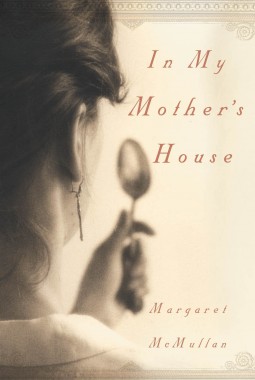
- The story is told in alternating points of view. Why do you think the author made this decision? What do you learn about the different views of mother and daughter?
- Are there parts of Jenny’s life that Elizabeth will never understand? Are there parts of Elizabeth’s life that Jenny will never understand? How might mothers and daughters live then and continue to relate with one another?
- Jenny keeps her emigration and family stories a mystery for most of Elizabeth’s life. What is the reason for all the mystery? Can you understand such secrets? Do you think it’s fair for Elizabeth to insist that her mother “tell all”?
- Why does Elizabeth travel all the way to Vienna? What does she find out when she finally gets to her mother’s country, city, street, and house? Why do you think the novel is called “In My Mother’s House”?
- Why is the relationship between Jenny and her new step-mother, Isabella so strained? What does Elizabeth think about Isabella? How does she “play” her?
- On page 231, Elizabeth thinks, “Hitler didn’t lose the war…He got so much of what he wanted. Too much.” Explain why she might think such a thing. Consider how she might be mistaken.
- What is Elizabeth’s view of present-day Vienna? Compare this view to Jenny’s memory of Vienna. How has it changed? How has it stayed the same? Consider the character of Henrich and all that he might represent as well.
- How does Jenny’s loss of vision help her in the end?
- What role does music play in Jenny’s life and in Elizabeth’s? Are the roles similar?
- What is the future for these women and this family?
- What does Judaism offer Elizabeth that she doesn’t find in Catholicism?
- How do these women resolve their conflict in the end – or do they?
- What is the value of assimilation for Jenny? What are the dangers of it in Elizabeth’s opinion?





